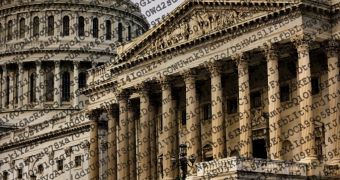Late Thursday night, a draft of a US bill created to address the country's stance on encryption leaked online, and cryptography experts along with civil advocates reacted accordingly, calling it everything from stupid to technically illiterate.
The bill, which you can read for yourself below this article, was drafted by Senators Richard Burr (North Carolina) and Diane Feinstein (California).
The two were very critical of Apple because it refused to help the FBI hack the San Bernardino shooter's iPhone, and have been quoted as saying that there's no company above the law when it comes to obeying court orders.
In order to make sure this doesn't happen ever again, the two have put together a bill that will force any US company to provide technical support for law enforcement if they ask for help in cracking encrypted data.
The bill basically asks companies to use weaker encryption which they could break whenever authorities get a court order and come calling for data.
Companies should provide technical assistance in decrypting data on demand
Practically, the two senators drafted a bill that the FBI and other totalitarian states would have loved. Notwithstanding the US' title of "land of the free," the bill looks something you would have expected China's leadership to approve. But there is good news.
"It's not hard to see why the White House declined to endorse Feinstein-Burr. They took a complex issue, arrived at the most naive solution," said Matthew Green, cryptography expert and Assistant Professor at the Department of Computer Science at Johns Hopkins University.
As it stands right now, the bill looks to face a lot of opposition from absolutely everyone that has an above-average IQ. Weakening encryption was a bad idea in the '90s when the Internet and cyber-threats were only taking their first steps, let alone now when the FBI has admitted that unknown hackers have been attacking the US for the past five years, but they only now found about it.
Below is the bill's draft, leaked online by Cory Bennett of The Hill.

 14 DAY TRIAL //
14 DAY TRIAL //